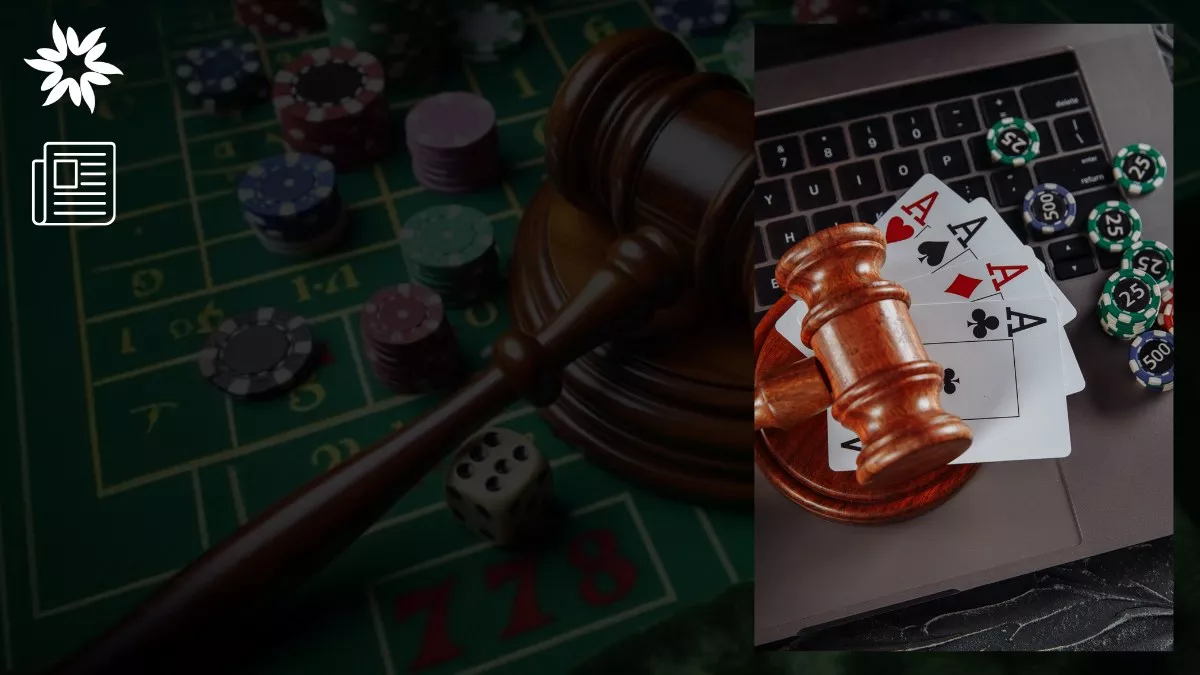Ireland has introduced the Gambling Regulation Bill to modernize its gambling sector.
The newly passed Gambling Regulation Bill sets up a modern, independent body called the Gambling Regulatory Authority of Ireland (GRAI).
The goal is to create a safer, better-regulated environment for gambling—for the companies running the bets and, more importantly, for the people placing them.
Let’s break down what this new law means for everyone involved.
Key Takeaways
- Ireland is updating its gambling industry with new rules and regulations.
- The Gambling Regulatory Authority of Ireland (GRAI) will handle stricter licensing and enforce new standards.
- A Social Impact Fund will help with education and support for gambling-related issues.
Why Ireland Needed This New Law
The new Gambling Regulation Bill is a response to old and outdated rules that have been in place for years.
The new law will cover all types of gambling in Ireland, except for the National Lottery.
However, its main focus is protecting public health and safety.
This means protecting everyone, especially younger people and those more at risk, from the harmful effects of gambling.
Minister James Browne, who led this effort, said this law results from years of hard work by government officials.
It’s all about creating a licensing system that works with today’s gambling world.
This means managing physical betting shops and addressing the massive growth in online gambling that has taken place in recent years.
The law also introduces strict penalties for illegal gambling activities, including the possibility of jail time.
Aside from handing out licenses—it’s about being tough on those who break the rules, especially those running illegal operations.
The Role of the GRAI: The Industry Watchdog
A major part of this new law is setting up the Gambling Regulatory Authority of Ireland (GRAI).
To that end, this new seven-member authority will have much power to keep tabs on the gambling industry.
Their job is to ensure that providers follow the rules and that people are protected from harmful practices.
They’re going to be handling everything from licensing to compliance and enforcement.
Anne Marie Caulfield has already been named as the CEO Designate of the GRAI, and she’s been working on getting everything ready.
Initially, GRAI will be focused on getting licenses issued and managed properly.
But that’s not all—they want to make sure everyone involved in gambling, from companies to customers, knows exactly the new rules and how to comply.
The GRAI will also manage the national self-exclusion register, which will be a big help for people who want to control their gambling.
There will now be one national register instead of each betting shop or online company managing its own self-exclusion list.
This means that when someone decides to be excluded, they’re cut off from all licensed operators, not just one or two.
Beforehand, it was easy to sign up to exclude yourself from one site and still gamble elsewhere.
But this new system closes that loophole.
So, overall, it’s a big step forward for people trying to get control of their gambling habits.
Addressing Gambling Harm Through the Social Impact Fund
The bill also sets up a Social Impact Fund to help deal with the negative effects of gambling.
This fund is paid for by betting companies and will be used to finance programs that raise awareness, educate people about gambling risks, and help those struggling with gambling problems.
It’s about taking responsibility for the harm that gambling can cause and making sure there’s help for those who need it.
Though Minister Browne and his team didn’t create this alone—they worked closely with people directly affected by problem gambling.
They also used a comprehensive study by the Economic and Social Research Institute (ESRI) to better understand how gambling affects people in Ireland.
These consultations ensured the new rules were aimed at solving real issues people face.
And the Irish government is also putting up money to make this work.
Minister Jack Chambers has set aside €9.1 million for the GRAI next year, with €4 million specifically for technology.
This investment will help make sure the new system works well, especially when it comes to managing online gambling.
What Happens Next?
Passing the Gambling Regulation Bill is a huge step, but more work must be done.
President Michael D. Higgins has signed the bill into law, but there are a few more steps before the GRAI can fully start regulating the industry.
The Public Appointments Service is in the process of recruiting the seven members needed for the authority to start working, and it’s expected that the GRAI will be up and running by mid-next year.
Betting companies, both online and in physical locations, are getting ready for the changes because operating without a proper license will be a crime under the new law.
Existing licenses will be subject to a transition period, but this is still a major change, and everyone needs to be ready.
The Irish Bookmakers’ Association has welcomed the new rules and is ready to work closely with the GRAI to make sure the industry follows the new guidelines.
As we discussed earlier, one of the most important parts of the new law is the creation of a national self-exclusion register.
In doing so, people who want to take a break from gambling can do so across all licensed operators.
Currently, most betting companies have their own systems, but they don’t share information, so if you want to exclude yourself, you have to do it separately with each company.
And thankfully, the new system will make it much easier for someone to completely stop gambling without worrying about gaps between operators.








